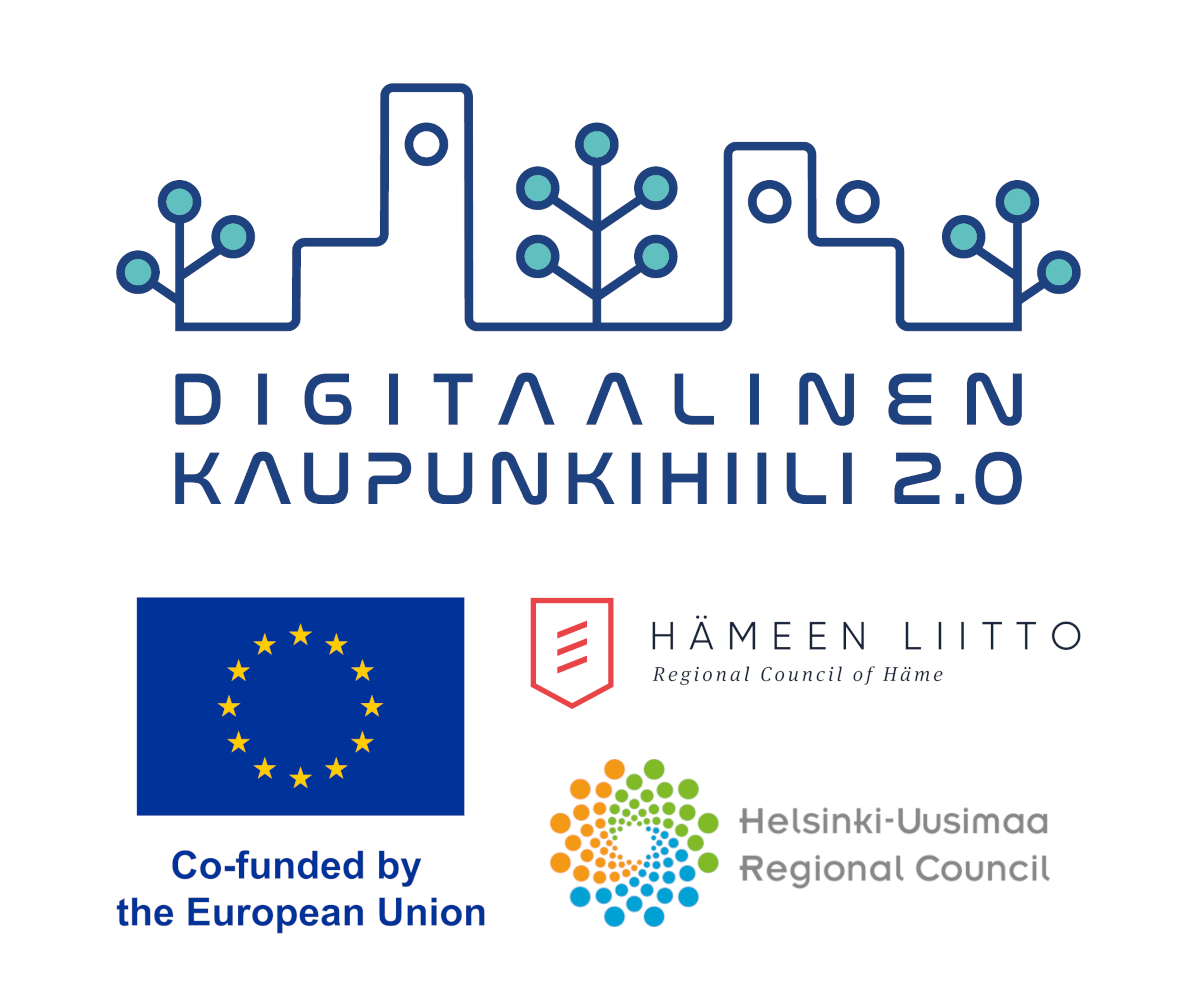Digital CityCarbon 2.0
New and supplementary data and method recommendations regarding natural carbon sinks in urban areas to support low carbon work of cities.
Project financial programme: European Regional Development Fund (ERDF)
Project duration: 09/2023 – 12/2025
Main implementer: Suomen ympäristöopisto SYKLI
Co-implementers: National Land Survey of Finland, Finnish Meteorological Institute, Aalto University (only in Uusimaa), and Häme University of Applied Sciences HAMK (only in Kanta-Häme)
Contact person at FMI: Esko Karvinen, esko.karvinen@fmi.fi
Project regions: Uusimaa and Kanta-Häme
Partner cities: Espoo, Forssa, and Riihimäki
Project budget: 340 127 euros
EU funding: 238 089 euros
Social media: in X @kaupunkihiili
Project description:
Digital CityCarbon 2.0 projects aims to determine, what kind of new and supplementary data as well as method recommendations can be produced regarding carbon sinks in built environment with the aim of supporting the low carbon work of cities. The focus will be on processing laser scanning data, interpreting satellite data, and using process-based models of carbon sequestration. By utilising existing data sources as well as the ones produced in the project, pilot-type geoinformation data is produced, and its usability and significance will be determined in city organisations on a practical level.
The projects will be implemented in the regions of Uusimaa and Kanta-Häme. Espoo, Forssa and Riihimäki will be involved as partner cities, but the aim is to reach out to all municipal organisations in the regions and interview municipal needs on how to increase carbon sinks, natural value and amenity in the area.
SYKLI Environmental College is the main implementer of the projects in both regions. The co-implementers of both projects are the Finnish Meteorological Institute and the National Land Survey of Finland. In Uusimaa, the project consortium includes Aalto University and in Kanta-Häme, Häme University of Applied Sciences HAMK.
Furthermore, the project investigates the overall need for the necessary data and the usability of the existing materials for the low carbon work of cities and, on the other hand, the need for further processing. The main outcome of the projects will be a publication on methods to promote low-carbon urban habitat management. The second output will be a virtual environment for urban modelling. A third output will be directly exploitable data repositories. The first publications will be distributed already in 2024 through the project’s social media channels. The project will be implemented simultaneously in both Uusimaa and Kanta-Häme regions.
The projects are open to business cooperation and companies are welcome to submit initiatives and suggestions on what challenges they would like to see addressed and whether there is anything that could be promoted and developed further together.
